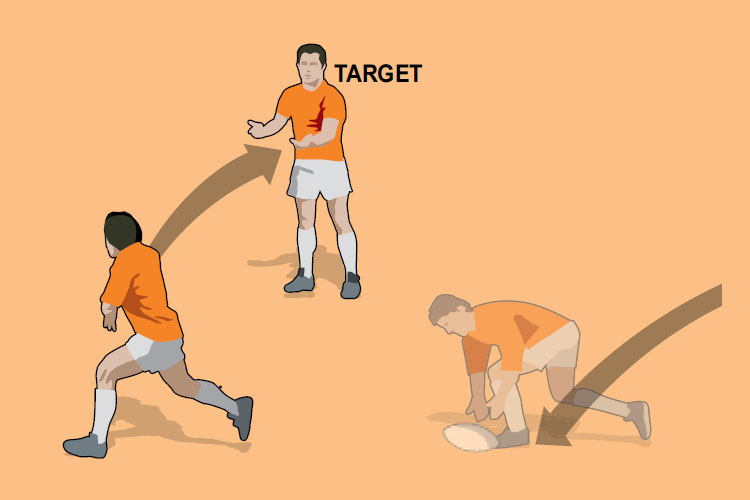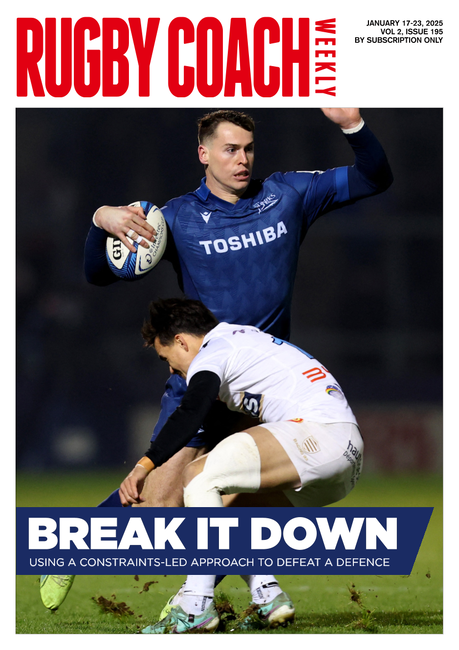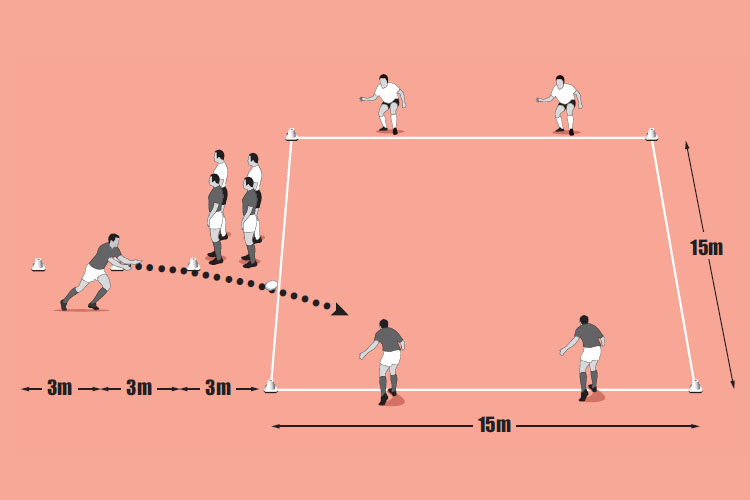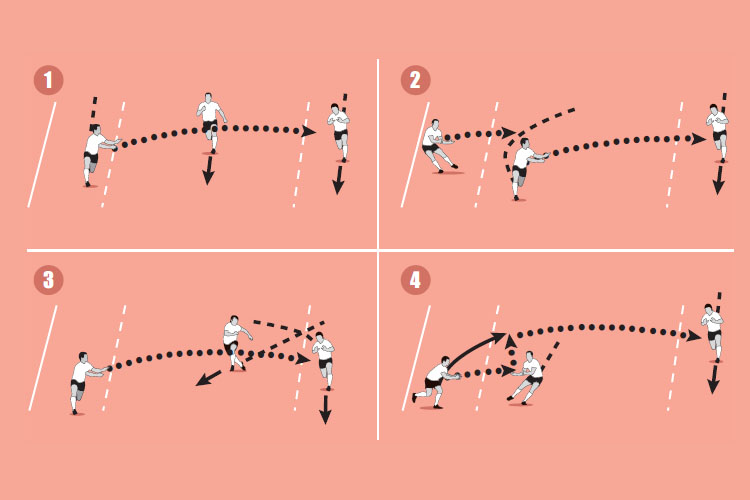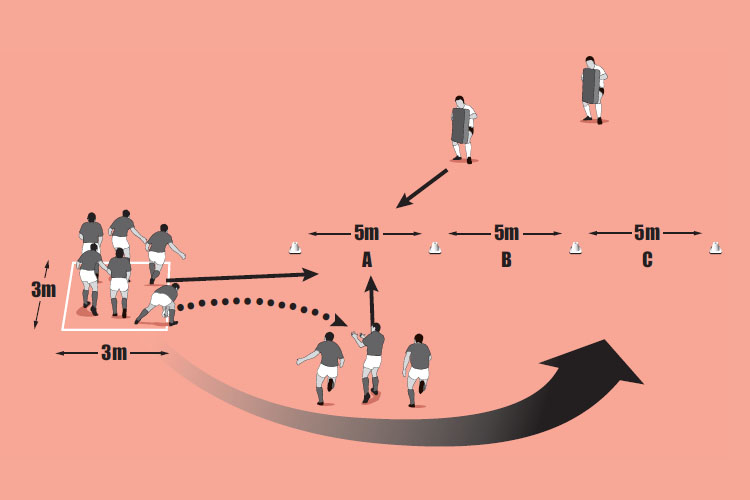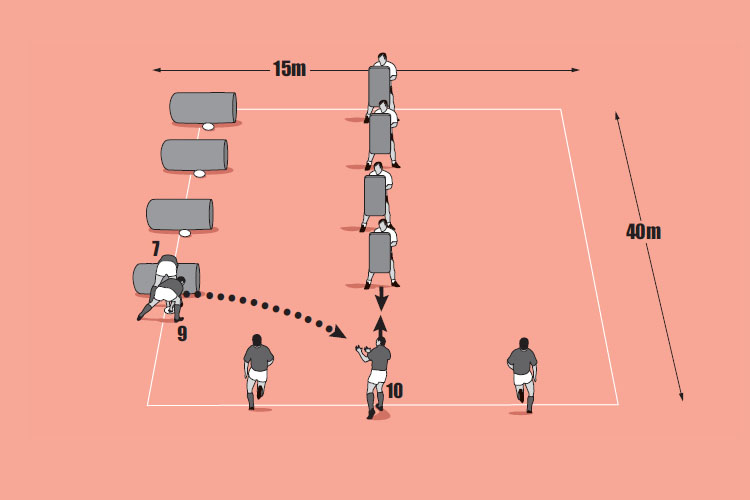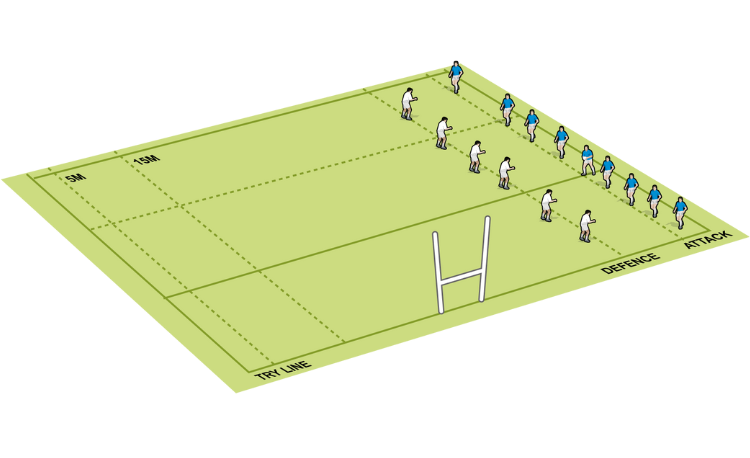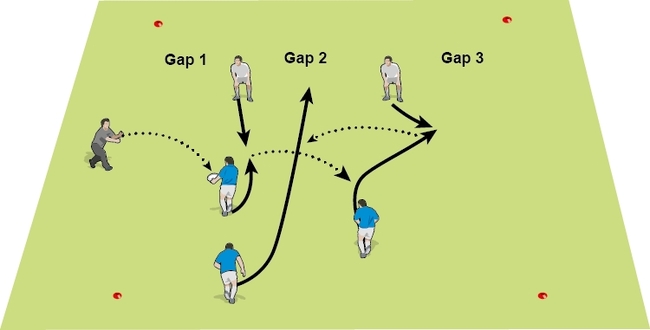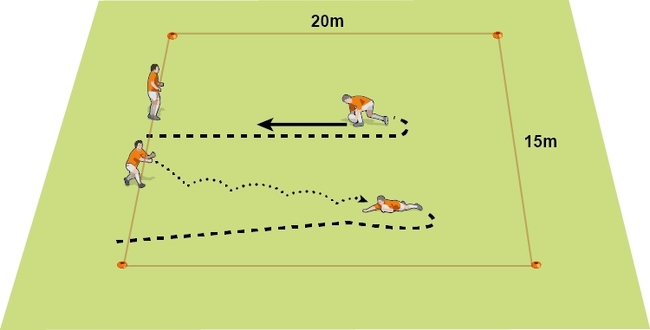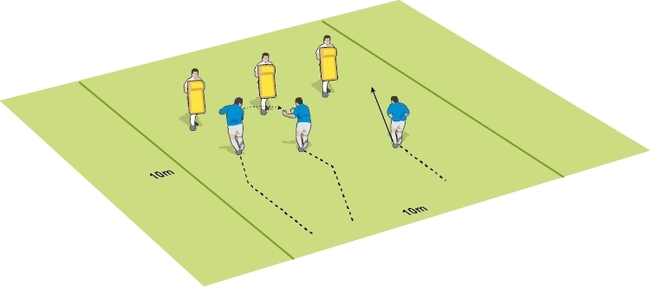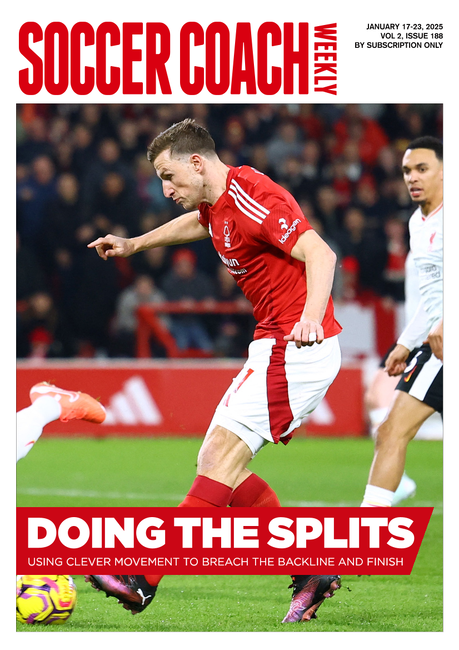Turning bad into good
A bad pass need not always mean the end of a fluid move. Players can learn to react positively by adjusting their bodies to catch and then deliver the ball, and support players can learn to delay their runs. In this way your side can continue their patterns of play even if one of the passes has been disrupted.
Warm up time: 7-10
Session time: 20-25
Development time: 10-15
Game time: 10-15
Warm down time: 7-10
What to think about
- How do I help players who are struggling to catch and pass on poor initial passes?Start with a static situation where the ball is fed low to the player, who catches and then turns this into a good pass. Spending time just catching low passes may be the first step for some players.
- Are the players able to stay balanced and keep up the forward momentum?Do the same initial exercise, with the players still receiving a poor pass, but cut out the onward pass. Ask the players instead to concentrate on keeping their speed up.
set-up
- Hands out for the ball. Be ready to adapt your hand position to catch the ball.
- Bend at the waist and keep watching the ball.
- Try to keep your speed constant throughout the run.
- Once you’ve caught the ball, quickly adjust your position to pass accurately to the receiver.
What you get your players to do
Set up two feeders at opposite sides of the area. Split the remaining players into two groups, lining each up at opposite ends of the area. Each player runs through the area and is fed a pass at knee height or below. The player has to take the ball low and make a good pass on to the opposite feeder.Development
- Turn the poor feed into an “ugly” feed by passing the ball behind the player.
- Add a defender holding a contact shield to add pressure.
- Add another player and widen the area. Now the first player has to turn a bad pass into a good pass to his team mate, who then passes on to the feeder on the opposite side.
Related Files
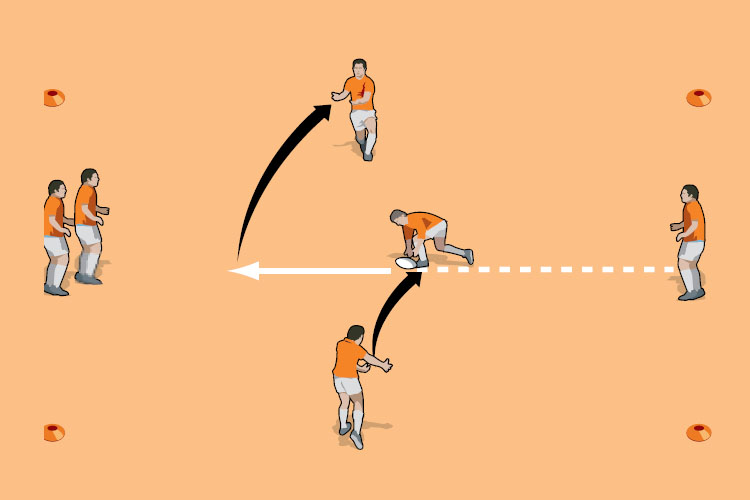
Game situation
Set up a conditioned game with all re-starts a tap and pass. Split into two teams of eight. Start with touch tackling before progressing to “live” tackling. There are two scoring methods. The first is the conventional method of tries and for each try a team scores four points. The second method of scoring is based on the quality of passing. For every bad pass that team is deducted a point, unless the bad pass is followed by a good pass. If possible have two referees, one to referee the game and one to make decisions on the passing scores.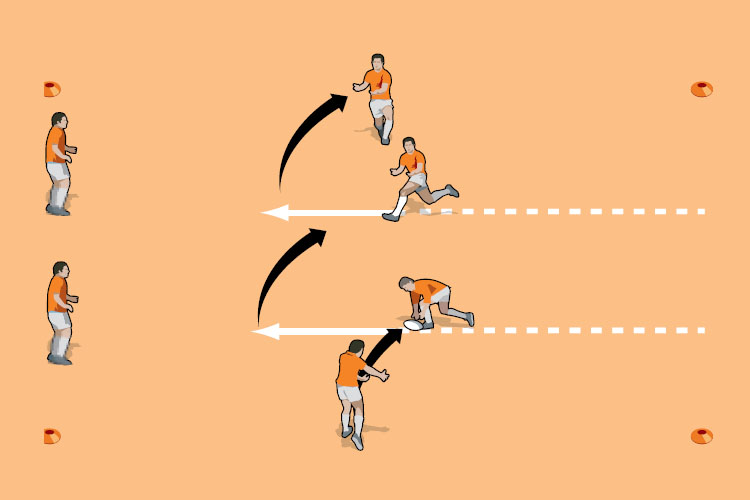
What to call out
- “Hands up as a target in a “W” formation”
- “Flip the ball away using your wrists”
- “Take smaller steps to keep your balance”
Newsletter Sign Up
Coaches Testimonials

Gerald Kearney, Downtown Las Vegas Soccer Club

Paul Butler, Florida, USA

Rick Shields, Springboro, USA

Tony Green, Pierrefonds Titans, Quebec, Canada
Subscribe Today
Be a more effective, more successful rugby coach
In a recent survey 89% of subscribers said Rugby Coach Weekly makes them more confident, 91% said Rugby Coach Weekly makes them a more effective coach and 93% said Rugby Coach Weekly makes them more inspired.
Get Weekly Inspiration
All the latest techniques and approaches
Rugby Coach Weekly offers proven and easy to use rugby drills, coaching sessions, practice plans, small-sided games, warm-ups, training tips and advice.
We've been at the cutting edge of rugby coaching since we launched in 2005, creating resources for the grassroots youth coach, following best practice from around the world and insights from the professional game.
